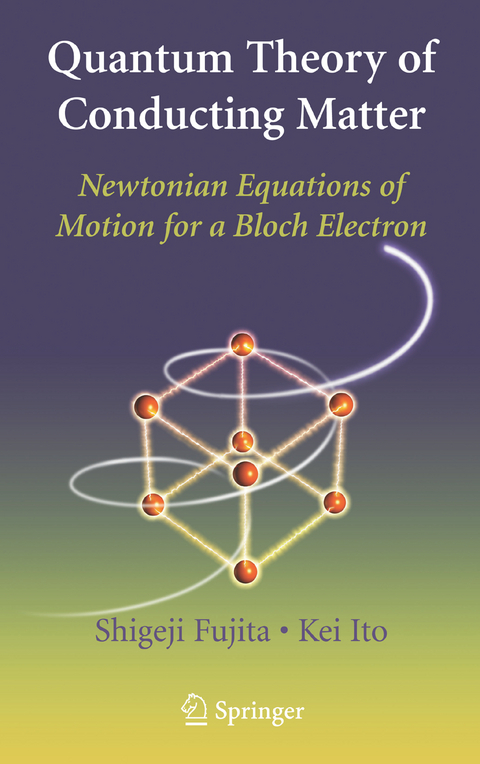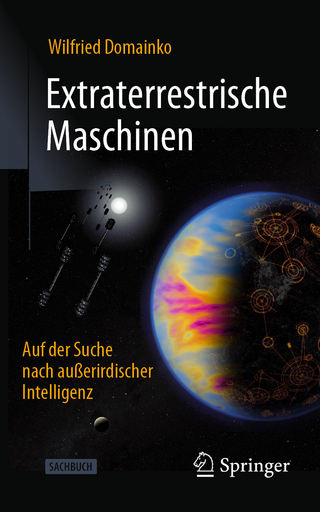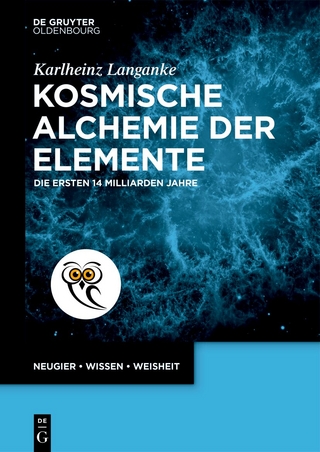
Quantum Theory of Conducting Matter
Springer-Verlag New York Inc.
978-1-4419-2547-3 (ISBN)
The measurements of the Hall coe?cient R and the Seebeck coe?cient H (thermopower) S are known to give the sign of the carrier charge q. Sodium (Na) forms a body-centered cubic (BCC) lattice, where both R and S are H negative, indicating that the carrier is the “electron. ” Silver (Ag) forms a face-centered cubic (FCC) lattice, where the Hall coe?cient R is negative H but the Seebeck coe?cient S is positive. This complication arises from the Fermi surface of the metal. The “electrons” and the “holes” play important roles in conducting matter physics. The “electron” (“hole”), which by de?- tion circulates counterclockwise (clockwise) around the magnetic ?eld (?ux) vector B cannot be discussed based on the prevailing equation of motion in the electron dynamics: dk/dt = q(E +v×B), where k = k-vector, E = electric ?eld, and v = velocity. The energy-momentum relation is not incorporated in this equation. In this book we shall derive Newtonian equations of motion with a s- metric mass tensor. We diagonalize this tensor by introducing the principal masses and the principal axes of the inverse-mass tensor associated with the Fermi surface. Using these equations, we demonstrate that the “electrons” (“holes”) are generated, depending on the curvature sign of the Fermi s- face. The complicated Fermi surface of Ag can generate “electrons” and “holes,” and it is responsible for the observed negative Hall coe?cient R H and positive Seebeck coe?cient S.
Shigeji Fujita is Professor of Physics at State University of New York at Buffalo and has published 3 books with the Springer family since 1996. His areas of expertise include statistical physics, solid and liquid state physics, superconductivity and Quantum Hall Effect theory. Kei Ito is also a Professor of Physics at the State University of New York at Buffalo, while on leave from the National Center for University Entrance Examinations in Tokyo, Japan.
Preliminaries.- Lattice Vibrations and Heat Capacity.- Free Electrons and Heat Capacity.- Electric Conduction and the Hall Effect.- Magnetic Susceptibility.- Boltzmann Equation Method.- Bloch Electron Dynamics.- Bloch Theorem.- The Fermi Liquid Model.- The Fermi Surface.- Bloch Electron Dynamics.- Applications Fermionic Systems (Electrons).- De Haas–Van Alphen Oscillations.- Magnetoresistance.- Cyclotron Resonance.- Seebeck Coefficient (Thermopower).- Infrared Hall Effect.
| Zusatzinfo | 80 Illustrations, black and white; XX, 244 p. 80 illus. |
|---|---|
| Verlagsort | New York, NY |
| Sprache | englisch |
| Maße | 155 x 235 mm |
| Themenwelt | Naturwissenschaften ► Physik / Astronomie ► Astronomie / Astrophysik |
| Naturwissenschaften ► Physik / Astronomie ► Elektrodynamik | |
| Naturwissenschaften ► Physik / Astronomie ► Festkörperphysik | |
| Naturwissenschaften ► Physik / Astronomie ► Optik | |
| Naturwissenschaften ► Physik / Astronomie ► Quantenphysik | |
| Naturwissenschaften ► Physik / Astronomie ► Theoretische Physik | |
| Technik ► Maschinenbau | |
| ISBN-10 | 1-4419-2547-3 / 1441925473 |
| ISBN-13 | 978-1-4419-2547-3 / 9781441925473 |
| Zustand | Neuware |
| Informationen gemäß Produktsicherheitsverordnung (GPSR) | |
| Haben Sie eine Frage zum Produkt? |
aus dem Bereich


